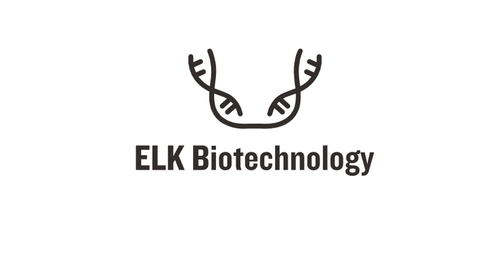Product Description
Human Poly (A) -specific ribonuclease PARN (PARN) ELISA Kit | KTE61303 | Abbkine
Application: This Human Poly (A) -specific ribonuclease PARN (PARN) ELISA Kit employs a two-site sandwich ELISA to quantitate PARN in samples. An antibody specific for PARN has been pre-coated onto a microplate. Standards and samples are pipetted into the wells and anyPARN present is bound by the immobilized antibody. After removing any unbound substances, a biotin-conjugated antibody specific for PARN is added to the wells. After washing, Streptavidin conjugated Horseradish Peroxidase (HRP) is added to the wells. Following a wash to remove any unbound avidin-enzyme reagent, a substrate solution is added to the wells and color develops in proportion to the amount of PARN bound in the initial step. The color development is stopped and the intensity of the color is measured.
Detection Method: Colorimetric
Conjugate: N/A
Sample Type: Cell culture supernatants#Serum#Plasma#Other biological fluids
Assay Type: Multiple steps standard sandwich ELISA assay with a working time of 3-5 hours. It depends on the experience of the operation person.
Kit Component: • Human Poly microplate
• Human Poly standard
• Human Poly detect antibody
• Streptavidin-HRP
• Standard diluent
• Assay buffer
• HRP substrate
• Stop solution
• Wash buffer
• Plate covers
Features & Benefits: Human Poly (A) -specific ribonuclease PARN (PARN) ELISA Kit has high sensitivity and excellent specificity for detection of Human PARN. No significant cross-reactivity or interference between Human PARN and analogues was observed.
Calibration Range: Please inquire
Limit Of Detection: Please inquire
Usage Note: • Do not mix components from different kit lots or use reagents beyond the kit expiration date.
• Allow all reagents to warm to room temperature for at least 30 minutes before opening.
• Pre-rinse the pipet tip with reagent, use fresh pipet tips for each sample, standard and reagent to avoid contamination.
• Unused wells must be kept desiccated at 4 °C in the sealed bag provided.
• Mix Thoroughly is very important for the result. It is recommended using low frequency oscillator or slight hand shaking every 10 minutes.
• It is recommended that all samples and standards be assayed in duplicate or triplicate.
Storage Instruction: The unopened kit should be stored at 2 - 8°C. After opening, please store refer to protocols.
Shipping: Gel pack with blue ice.
Precaution The product listed herein is for research use only and is not intended for use in human or clinical diagnosis. Suggested applications of our products are not recommendations to use our products in violation of any patent or as a license. We cannot be responsible for patent infringements or other violations that may occur with the use of this product.
Background: Poly A Specific Ribonuclease is a 3'-exoribonuclease, with similarity to the RNase D family of 3'-exonucleases. It prefers poly (A) as the substrate, hence, efficiently degrades poly (A) tails of mRNAs. Exonucleolytic degradation of the poly (A) tail is often the first step in the decay of eukaryotic mRNAs. This protein is also involved in silencing of certain maternal mRNAs during oocyte maturation and early embryonic development, as well as in nonsense-mediated decay (NMD) of mRNAs that contain premature stop codons. Alternatively spliced transcript variants encoding different isoforms have been found for this gene. Poly (A) -specific ribonuclease PARN protein appears to be localized in both the nucleus and the cytoplasm. It is not stably associated with polysomes or ribosomal subunits.
Alternative Names: PARN; DAN; deadenylating nuclease
Search name: PARN; DAN; deadenylating nuclease
Tag: PARN
 Euro
Euro
 USD
USD
 British Pound
British Pound
 NULL
NULL












